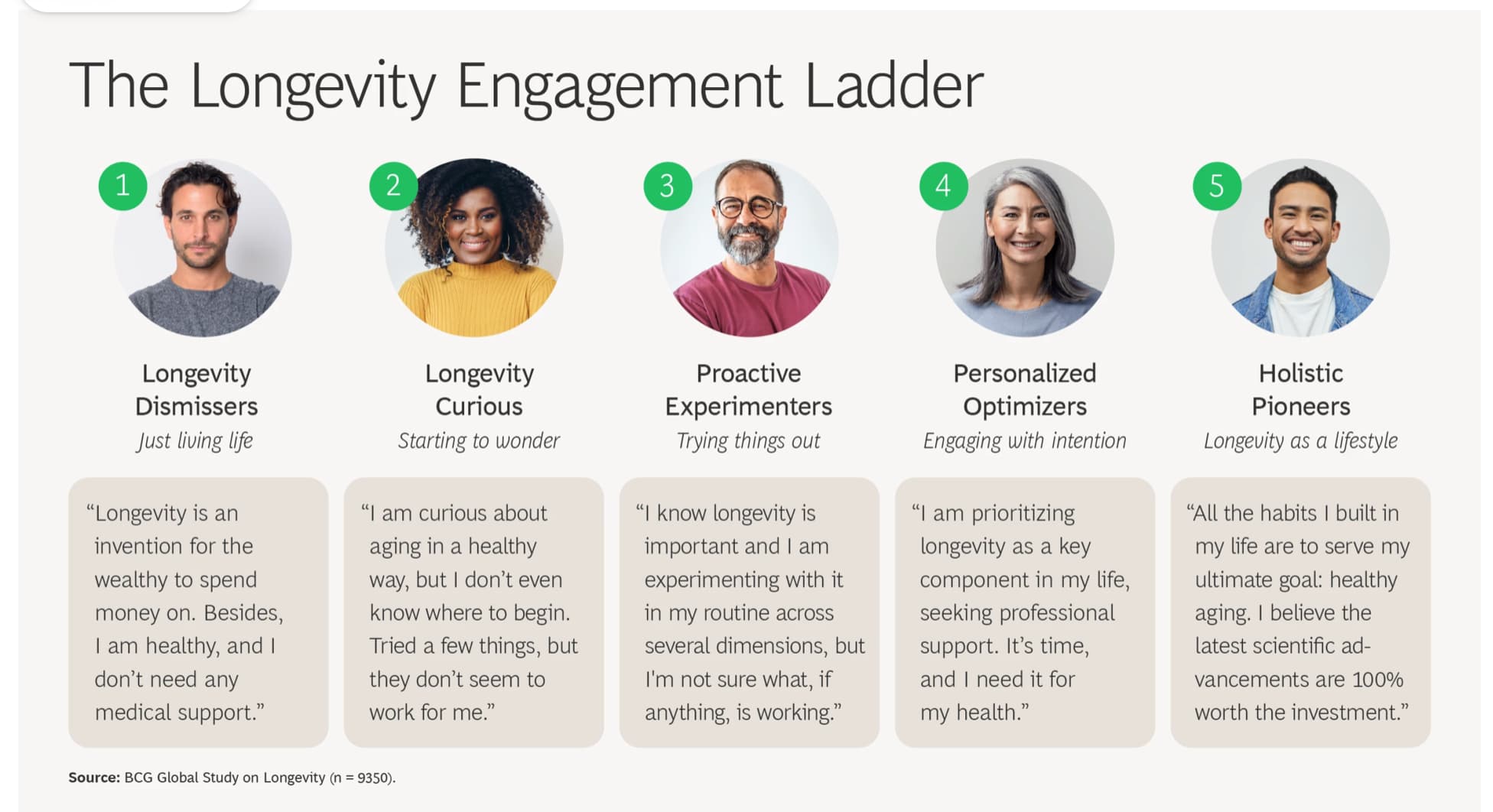As the global population ages, many economies are bracing for a one-two punch: a shrinking workforce colliding with rising health and social care costs—the so-called “gray wave.” Healthy aging holds the potential not just to offset these impacts, but to add trillions in economic value by keeping people active, productive, and independent longer. What do we mean by healthy aging? The World Health Organization defines it as “the process of developing and maintaining the functional ability that enables wellbeing in older age.”
The benefits of healthy aging aren’t just economic, they’re personal. A longer life in good health means more time spent doing the things we value, from traveling and connecting with family and friends to contributing to our communities. BCG’s Global Study on Longevity, conducted for the St. Moritz Longevity Forum, surveyed 9,350 respondents across 19 countries. The study confirms that this vision of enjoying a long, healthy, satisfying life resonates with people from all backgrounds across the globe, even if they’re unsure how to achieve it.
As lifespans rise and science unlocks new ways to extend vitality, most people don’t start thinking about aging well until it’s too late. We call this the longevity paradox.
In addition to confirming people’s desire to experience healthy aging, our survey also reveals something deeper: people are just as focused on the *inputs—*what they think they should do—as they are on the outcomes they hope to achieve.
Top of mind for most people is maintaining physical health and functional ability (29% cited this as their first priority), followed by eating a nutritious diet (25%), engaging in regular physical activity (22%), and getting quality sleep (22%). But close behind these are more emotional and existential goals: living with purpose and joy (22%) and staying mentally and creatively stimulated (19%).
The takeaway? People often confuse the outcomes of healthy aging (joy, purpose, functional ability) with the means by which we can make it happen (better diet, exercise, sleep). That confusion matters. Overemphasizing the means can feel like a stream of self-improvement homework, which rarely inspires lasting change in people. But anchoring the conversation in what people want—whether it’s dancing at their grandchild’s wedding or hiking into their 80s—is far more motivating.
Full story:
https://www.bcg.com/publications/2025/why-we-dont-plan-healthy-aging-before-late

